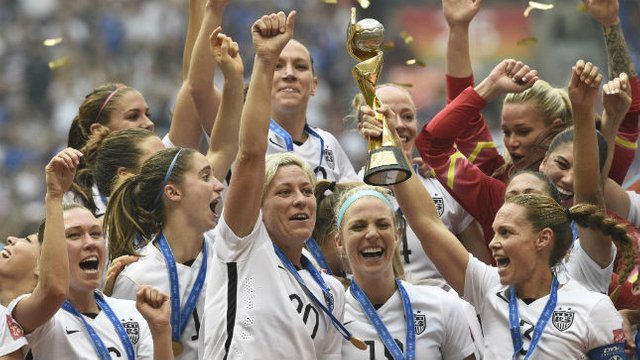United States squad – The leading women’s soccer team significantly recorded a gender discrimination lawsuit against their home soccer federation over pay equity and discriminated working conditions

On Friday, more than two dozen of United States women’s national team members brought U.S. Soccer to a federal court.
The suit is hold by United States District Court in Los Angeles, just comes three months before the female team will compete for its Women’s World Cup title at this summer’s tournament in France. In their case and a statement released by the team, twenty-eight players described that US soccer give “institutionalized gender discrimination” that has existed for years.
The discrimination, the female players said, affects not only their wages but also the location and the consequences, the training ways, the medical treatment and coaching they receive, and even the travel ways to matches.
The players involved includes prominent stars like Alex Morgan, Megan Rapinoe and Carli Lloyd as well as their teammates who are some of the most accomplished and best-known female players in the world, members of a squad that has been a leading force in female sports for more than a generation.
The continuing battle between women’s soccer players and U.S. Soccer, which is not only their employer, but also the federation that governs the sport in America, has pushed them to the forefront of an expanding fight for equality in women’s sports. In recent years, the athletes in other sports genres such as American hockey gold medalists, Canadian soccer pros, W.N.B.A. players — have communicated to the United States players and their union for instruction in their efforts to win similar gains in terms of paychecks and working conditions.
For many years, U.S. Soccer Federation has been a world leader in its support for women’s soccer; its contribution of time and resources which has brought the United States became a three-time world champion and a four-time Olympic gold medalist, the major power in women’s game. But at that time generations of women’s national team players are always complaining that the federation’s financial support and logistical infrastructure for women’s athletes have lagged behind in comparison with the more high-profile men’s team.
The fight of women’s players maximize their value in the same way other athletes have done and provide a roadmap for the next team home or abroad which catches fire and has to follow suits related to the great inequities in resources or a governing body’s discrimination between the men’s soccer and the women’s.
